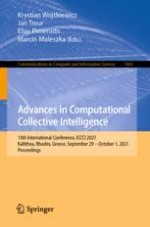2021 | OriginalPaper | Chapter
Is Wikipedia Easy to Understand?: A Study Beyond Conventional Readability Metrics
Authors : Simran Setia, S. R. S. Iyengar, Amit Arjun Verma, Neeru Dubey
Published in: Advances in Computational Collective Intelligence
Publisher: Springer International Publishing
Activate our intelligent search to find suitable subject content or patents.
Select sections of text to find matching patents with Artificial Intelligence. powered by
Select sections of text to find additional relevant content using AI-assisted search. powered by
